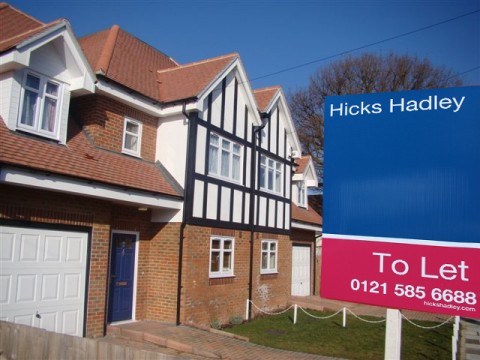
How to become a landlord
-
Check you’re legally eligible to let
If your property has a mortgage then you’ll need to check with your mortgage lender and get a buy-to-let mortgage.
You’ll also need to check if the property is leasehold or freehold. If it’s leasehold then you’ll need permission from a freeholder to sublet.
-
Choose your buy-to-let property
If you don’t already have a property that you’re looking to put on the market then you need to find one.
You’ll need to consider:
-
Location of the property
-
The property’s state of repair (property maintenance can be costly)
-
The age of the property
-
Accessibility
-
Apply for a buy-to-let mortgage
In order to apply for a buy-to-let mortgage, you should:
-
Already be a homeowner
-
Have a good credit rating
-
Have a salary of over £25,000 per annum
-
Be under 70 years of age
-
A deposit of around 25% is usually required
-
Decide how to manage your property
You can choose to:
-
Manage the property yourself
-
Invest in a lettings agent to manage your property
Using a lettings agent can take the stress out of the process by managing inspections, tenants and rent collection.
-
Find some tenants
Once you have completed all of the above, and attained landlord insurance as well as made sure your property adheres to safety regulations, you’ll be able to put your rental property on the market.
Lettings agents can help find appropriate, long term, reliable tenants for your property.

Landlord responsibilities
-
Property maintenance and repair, including the cost
-
Security of your rental property
-
Compliance with gas, electric and fire safety regulations
-
Protection of your tenant’s money by enrolling in a Client Money Protection scheme
-
Ensure your tenant has right to rent in the UK
By finding a suitable letting agent, you’ll gain access to key advice regarding your responsibilities, and your rental income will be placed in safe hands.
Safety regulations for landlords
In order to safely rent in the UK, landlords must:
-
Install a carbon monoxide alarm in any room with a solid fuel burning appliance
-
Install a smoke detector on the escape routes on each floor of the building
-
Get gas appliances checked by a Gas Safe engineer every year
-
Get electrical testing every 5 years
-
Make sure furniture is fire safety compliant
-
Make sure electrical equipment is safe for use
-
Secure all windows, doors and locks
-
Get the property inspected and issued with an Energy Performance Certificate
-
Provide your tenants with copies of safety certificates
Costs vs potential returns
Expenses:
-
Mortgage repayments
-
Letting agency fees
-
Rental income tax
-
Property renovation costs
-
Ongoing maintenance costs
-
Landlord insurance costs
-
Bill coverage i.e. council tax
-
Stamp duty
How much tax do landlords pay?
This depends on your total tax deductible income.
You have a personal allowance of up to £12,570. After that, you’ll pay:
|
Income value |
Tax rate |
|
|
Basic rate |
£11,851- £46,350 |
20% |
|
Higher rate |
£46,351- £150,000 |
40% |
|
Additional rate |
£150,000+ |
45% |
Rental income
Steady rental income is the goal for any first time landlord, and can yield plenty of benefits when you find a reliable tenant.
Rental income may fluctuate due to capital growth and the absence of a tenant therefore it’s important to have plenty of return from rental income to cover months when you may have a rental void.
Rental yield
Rental yield calculates your rental income as a percentage of the total value of your buy-to-let property. It helps you understand whether your property is a wise investment.
To calculate your rental yield, divide your annual rental income by the property value then multiply the result by 100.
For example, if your rental income is £9000 and your property value is £150,000 then your rental yield would be 6%.
Property investors generally consider 7% to be a sturdy rental yield.
Landlord regulations
How long can a landlord hold a deposit?
After a tenant requests their deposit, the landlord must return it within 10 days. A tenant cannot request return of their deposit before the termination of their tenancy.
How often should a landlord replace appliances?
There is no legal requirement for tenants to replace appliances unless they are damaged or break. However, appliances should be refurbished every 10 years.
How often can a landlord inspect a property?
A landlord should inspect a property quarterly to:
-
Conduct a thorough check of the state of the property
-
Attend to any maintenance or repairs that have appeared since the previous inspection
-
Make sure the tenant is looking after the property
Inspections should be a minimum of 3 months apart to avoid harassment and a notice period of at least 24 hours must be given prior to the inspection.
Hicks Hadley offers a fully comprehensive service including maintenance checks on properties so that you don’t have to worry.
Letting to tenants with pets
The new standard tenancy agreement was introduced in January 2021.
Under the new Model Tenancy Agreement, landlords will no longer be able to issue a blanket ban on pets without just cause. Rejections will need to be made individually, and tenants will be responsible for covering the cost of any damage caused by their pets to the property.
Why you should consider renting to pet owners:
-
Rental properties are in high demand
-
Prospective tenants may be willing to pay a higher rate to secure them
-
Could help you secure long-term tenants
Landlord's insurance
Landlord insurance is insurance cover that protects landlords from various risks associated with renting out their property. For example, property owner’s liability insurance, loss of rent insurance and building insurance.
The cost of landlord insurance depends on the type of insurance you require, the nature of your business and the level of cover you opt for.
Right to rent
Landlords in England are legally required to check that prospective tenants have the right to rent in the UK before they sign any rental agreements.
Tenants have right to rent if:
-
They are a British citizen
-
They have permission from the Home Office to live in the UK. This covers work visas, student visas or have been granted a time-limited right to rent
-
They have settled status or indefinite leave to remain in the UK
-
They have humanitarian protection or qualify under refugee status
Can I rent out an inherited property?
Yes, you can rent out an inherited house.
Before you continue with letting an inherited house, you’ll need to make sure you can cover any remaining mortgage payments on the property and then check with your mortgage lender that you’re allowed to let the house.
It is recommended that your rental income be at least ¼ higher than your monthly mortgage payments.

Houses in Multiple Occupation (HMO)
What is HMO?
HMO stands for houses in multiple occupation and refers to any building, property or flat where:
-
At least 3 people occupy the property from more than 1 household
-
Toilet, bathroom or kitchen facilities are shared between tenants
What are my responsibilities if I let a HMO?
A landlord will have more responsibilities if letting a HMO. These include:
-
Making sure there is enough bin space
-
Electrics are replaced every 5 years
-
The property is not overcrowded
-
Gas safety checks are carried out annually
-
Communal areas are clean and in good condition
-
Fire safety measures are strictly in place, including installing fire doors
HMO licence
You must get a licence granted by the council if your HMO:
-
Is occupied by 5 or more unrelated people
-
Has 2 or more separate households in occupation
What is the minimum room size for sleeping?
In an HMO, bedroom size must be:
-
1 person aged 10 or over: 6.51 square metres
-
2 people aged 10 or over: 10.22 square metres
-
A child under 10: 4.64 square metres
Some councils will set higher standards.
Preparing for tenants
Before you move your tenants in, make sure you:
-
Tend to any structural repairs
-
Deep clean the property
-
Update appliances, including the boiler, kitchen appliances and plumbing
-
Conduct professional fire, electrical and gas safety checks to comply with legal regulations
-
Make sure your tenants have working keys
-
Move utility bills into the name of your new tenants
-
Leave instructions for all appliances in the property
-
Take final metre readings and make a record for yourself and your tenants
Leave your tenants copies of the following:
-
An inventory of the property
-
Smoke alarm checkline
-
Energy Performance Certificate
-
Electrical report (EICR)
-
Gas safe record
-
Terms and conditions in relation to the deposit
-
How to rent booklet
-
A Schedule 2 Ground 2 Mortgage Notice
-
An Assured Shorthold Tenancy Agreement
-
Your contact and bank details, should you be managing the property yourself
If you’re considering renting out a property in Halesowen, Cradley Heath, Rowley Regis or Bartley Green, Hicks Hadley are here to guide you through the process. Many of our lettings agents are landlords themselves which means we can offer inside advice and guidance from personal experience, and recommend the most appropriate route for renting out your property.
For further information on what we offer, take a look at our advice for landlords and landlord packages or request a free valuation from our property experts.
0121 585 6688 | lettings@hickshadley.com
Hicks Hadley, 11 Hagley Road, Halesowen, West Midlands, B63 4PU





